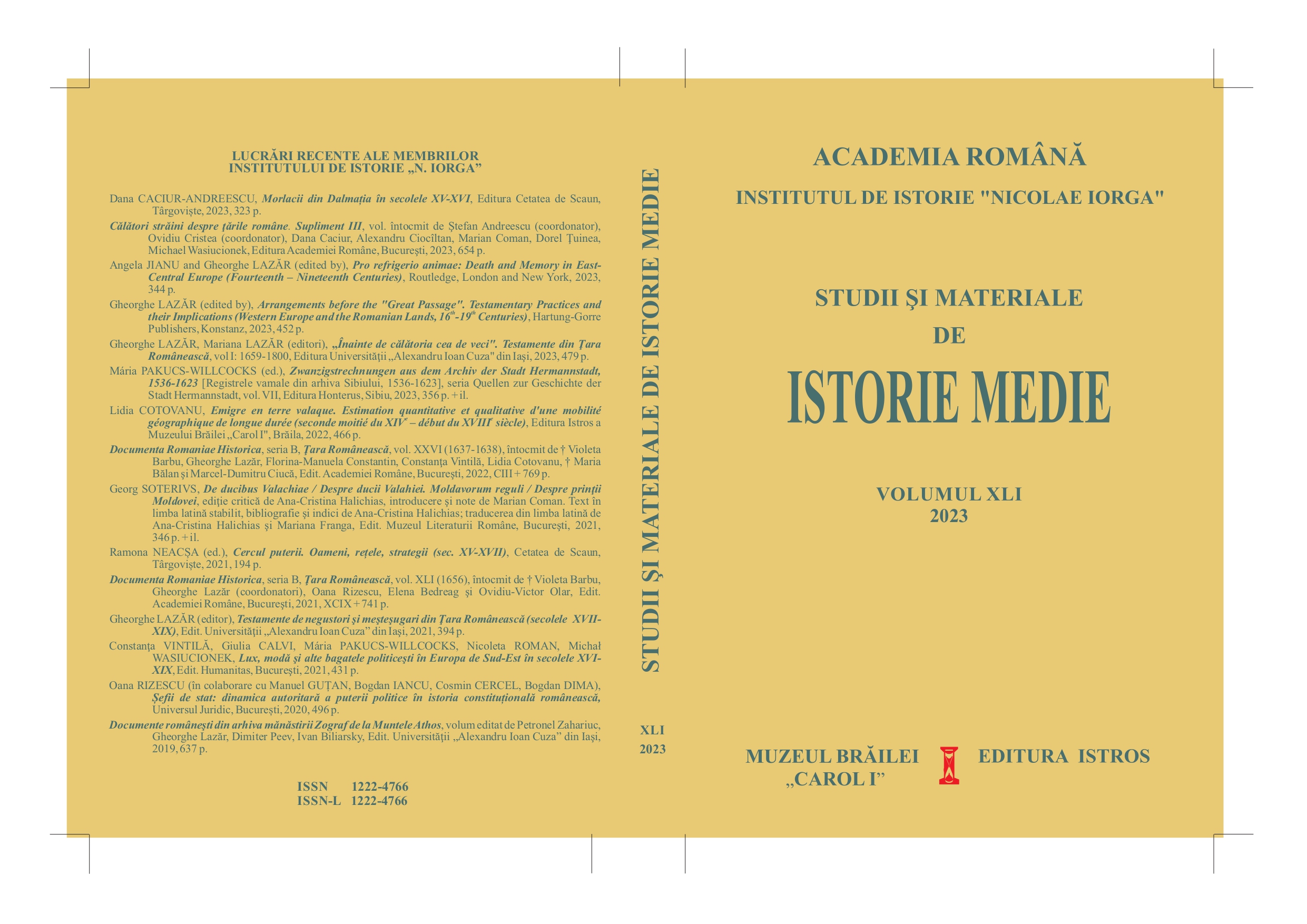De la Anastasie Crimca la Matei Basarab. Manifestări ale sentimentelor antigrecești în Țările Române
From Metropolitan Anastasie Crimca to Prince Matthew Basarab. Displays of anti-Greek Sentiments in Wallachia and Moldavia
Author(s): Maria Magdalena SzékelySubject(s): History, Ethnohistory, Political history, 17th Century, History of Religion
Published by: Institutul de Istorie Nicolae Iorga
Keywords: Anastase Crimca; Miron Barnovski; Matthieu Basarab; Grecs; xénophobie;
Summary/Abstract: The present study analyses several texts: a note by the Metropolitan of Moldavia Anastasius Crimca (1610), three documents issued by the Moldavian lord Miron Barnovski (1626) and three documents coming from the chancery of the Wallachian lord Matthew Basarab (1639-1640). All these documents deal with the patronage rights and all have a pronounced Grecophobia. The antipathy towards the Greeks in the Romanian Principalities is a subject both sensitive and controversial. Previous scholars assumed that the anti-Greek sentiments emerged in Wallachia earlier than in Moldavia, probably considering the geographical position of this principality, more exposed to the influx of people and to the influences coming from south of the Danube. However, the present study argues that, at least when the ecclesiastical matters were concerned, the anti-Greek feelings first appeared in Moldovia. Already from the 16th century, there are written sources attesting to the existence of such xenophobic feelings. The intolerance manifested against Catholics, Protestants and Armenians was typically attributed to a traditionalist Orthodox stance, adopted by the high clergy and by the monks closed to the circles of power. In this pre-existing context, an increasing number of Ottoman Christians attempted to infiltrate into the Moldavian elite. In the first decades of the 17th century, the anti-Greek stance became vehement in the Romanian principalities, taking various forms, from rhetoric to revolt. Based on its own beliefs and self-interests, the entire Moldavian society – boyars of all ranks, townspeople, peasants and soldiers – identified a generic „enemy” in the Greek-speaking immigrants. The Orthodox faith shared by Wallachians, Moldavians and Greeks did not ease this resentment. As time went by, these resentments manifested increasingly vigorously, as local scholars reinforced the idea of the Latin origins of the Romanians, in the footsteps of the 16th century humanists.
Journal: Studii şi Materiale de Istorie Medie (SMIM)
- Issue Year: XLI/2023
- Issue No: XLI
- Page Range: 19-32
- Page Count: 14
- Language: Romanian, French
- Content File-PDF

